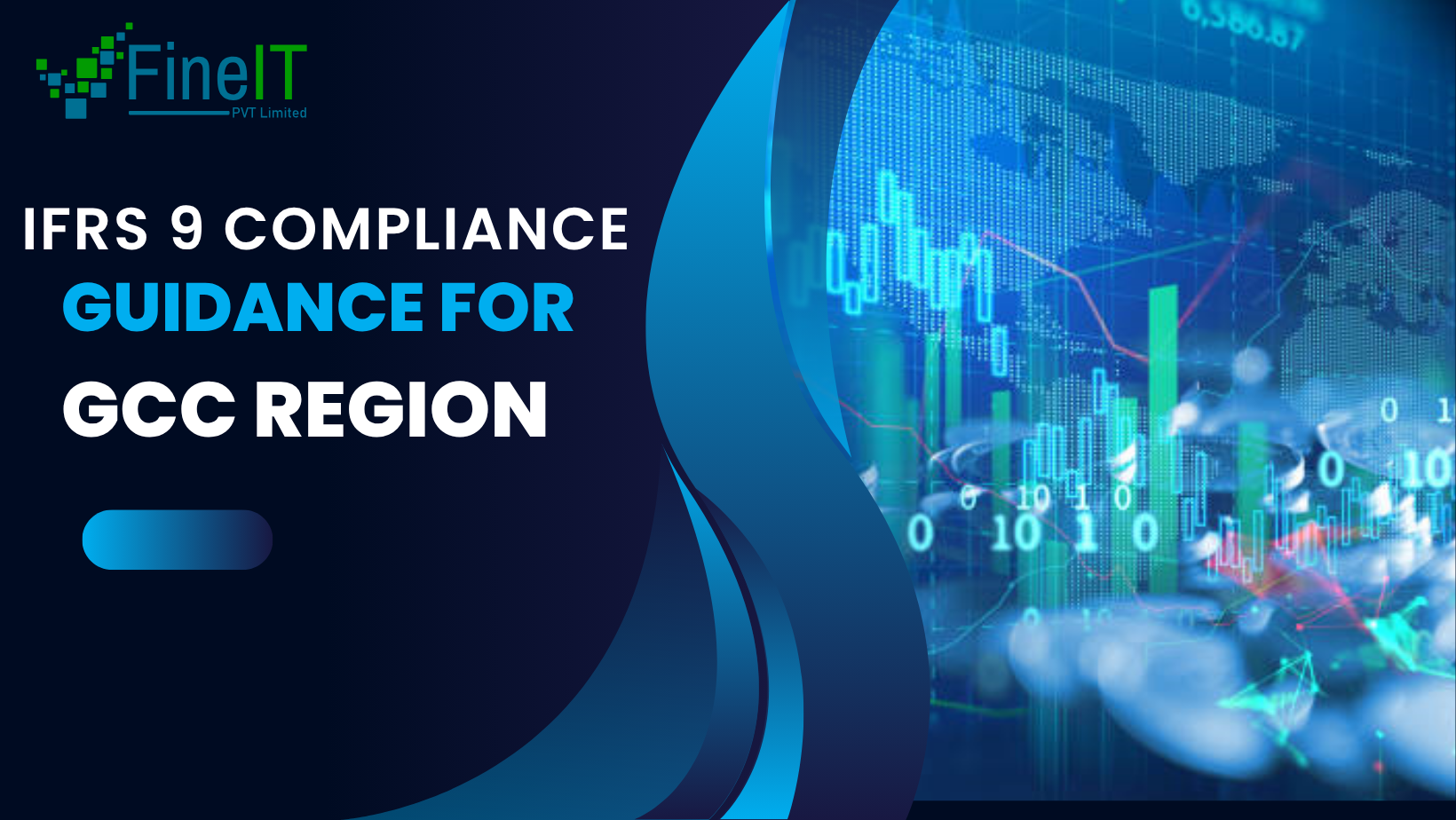IFRS 9 — the International Financial Reporting Standard for financial instruments — is a globally adopted framework that significantly impacts banks and financial institutions. In the Gulf Cooperation Council (GCC) region, compliance with IFRS 9 is not just a technical requirement but a strategic necessity, enforced under the watchful supervision of central banks like SAMA, CBUAE, QCB, CBK, CBB, and CBO.
The GCC banking sector is deeply integrated with international financial markets. IFRS 9 ensures:
- Transparent credit risk recognition
- Forward-looking provisioning via Expected Credit Loss (ECL) models
- Improved investor confidence and regulatory trust
Key Components of IFRS 9 Relevant to GCC Compliance
1. Classification and Measurement
Banks in the GCC must classify financial assets based on:
- Business model: Hold to collect, hold to collect and sell, or trading
SPPI test: Does the instrument solely provide payments of principal and interest?
2. Expected Credit Loss (ECL) Models
ECL is the core of IFRS 9. GCC banks must:
- Calculate 12-month ECL for Stage 1 assets
Switch to Lifetime ECL for Stages 2 and 3
Incorporate forward-looking macroeconomic data - Examples of ECL model inputs:
- Probability of Default (PD)
- Loss Given Default (LGD)
- Exposure at Default (EAD)
- GDP forecasts, oil prices, interest rate trends
Local Guidance:
- Saudi Arabia (SAMA): Strong stress testing expectations
- UAE (CBUAE): Detailed validation and model governance requirements
- Qatar (QCB): Requires disclosures of key assumptions and overlays
3. Islamic Finance Adaptation
Many GCC institutions offer Shariah-compliant products, requiring careful IFRS 9 adaptation. Challenges include:
- Classification of Ijara and Murabaha
- Measuring ECL where risk-sharing rather than lending applies
- Banks should work with:
- Shariah scholars
- Regulators
- Auditors to ensure a compliant approach
4. Disclosures and Governance
Under IFRS 7, GCC banks must:
- Disclose key assumptions, risks, and sensitivities
- Outline changes in staging and credit risk movements
- Publish quantitative and qualitative ECL data
- Governance Expectations:
- Model validation and independent review
- Regular recalibration
- Audit trail for manual overlays and judgments
Country-Specific Highlights
| Country | Regulator | IFRS 9 Status | Key Focus |
| Saudi Arabia | SAMA | Mandatory | Staging criteria, model risk |
| UAE | CBUAE | Mandatory | Data quality, scenario analysis |
| Qatar | QCB | Mandatory | Transparent disclosures |
| Kuwait | CBK | Mandatory | Audit and stress testing |
| Bahrain | CBB | Mandatory | Islamic finance adaptation |
| Oman | CBO | Mandatory | Governance and board oversight |
Implementation Challenges in the GCC
Despite full adoption, institutions face common challenges:
- Data limitations for historical credit loss
- Dependence on judgment, especially in staging
- Scenario building, especially where macro data is volatile
- Integration with Islamic banking standards
- Solution: Many banks turn to external ECL software solutions and partner with Big Four or fintech consultants for modeling and validation.
Tools and Technology
To ensure consistent compliance, many GCC banks use:
- Automated ECL calculators
- Model governance platforms
- Macro-data connectors for forward-looking inputs
- Vendors typically offer tools compatible with both IFRS 9 and Basel III.
Best Practices for GCC Institutions
Establish a cross-functional IFRS 9 team (Finance, Risk, IT)
- Align with central bank guidance — follow circulars and compliance deadlines
- Validate and backtest ECL models regularly
- Ensure Shariah board oversight for Islamic product classification
- Invest in technology to reduce manual modeling risk
- Train stakeholders across risk, finance, audit, and IT
Conclusion:
IFRS 9 compliance in the GCC is no longer a one-time implementation project but a living framework requiring robust governance, consistent validation, and regulatory alignment. By proactively refining ECL models, enhancing disclosures, and aligning with Islamic finance principles, GCC banks can meet both regulatory expectations and stakeholder trust.
Muzammal Rahim Khan is the CEO and Co-Founder of FineIT, bringing over 15 years of expertise in software development, implementation, and technical consulting across global markets including the U.S., U.K., Europe, Africa, and Asia. He has led the design and delivery of enterprise-grade solutions that modernize compliance, risk management, and financial reporting for banks and financial institutions. Under his leadership, FineIT has built flagship platforms such as Estimator9 (IFRS 9) and ContractHive (IFRS 16), empowering clients with automation, accuracy, and audit-ready confidence. Muzammal combines deep technical knowledge with strategic vision, driving innovation that bridges regulatory requirements with practical, scalable technology. His focus remains on building resilient, future-ready solutions that strengthen trust and efficiency in financial services.
